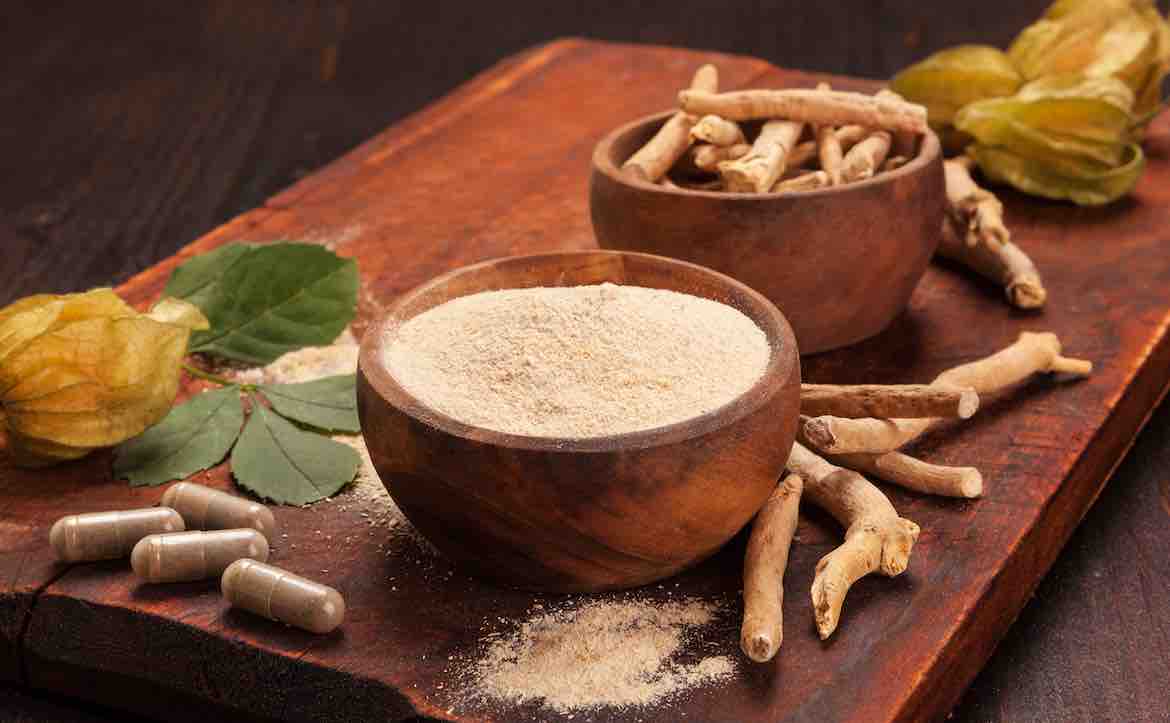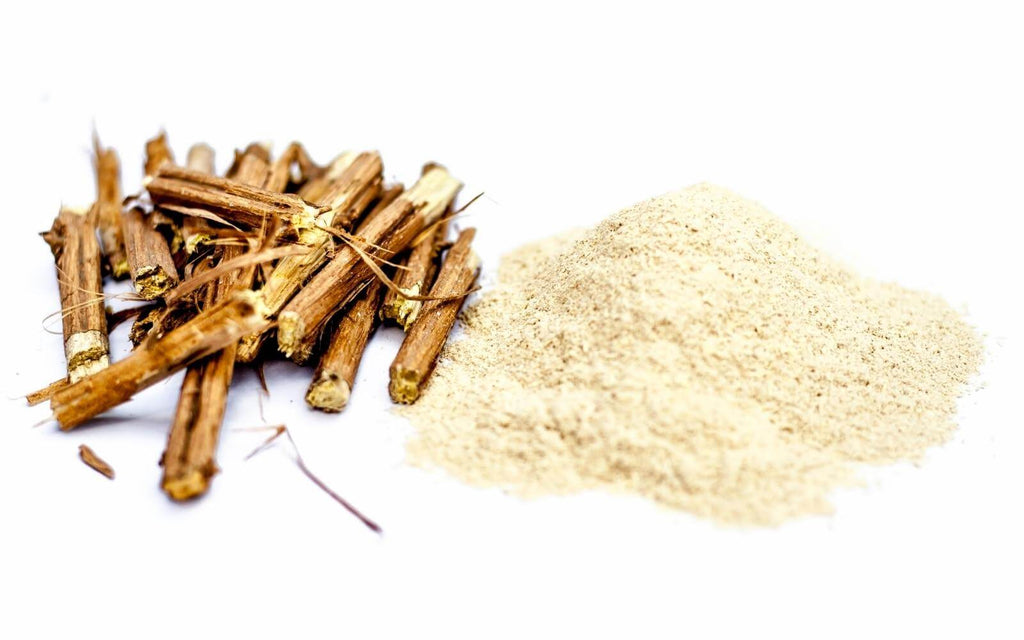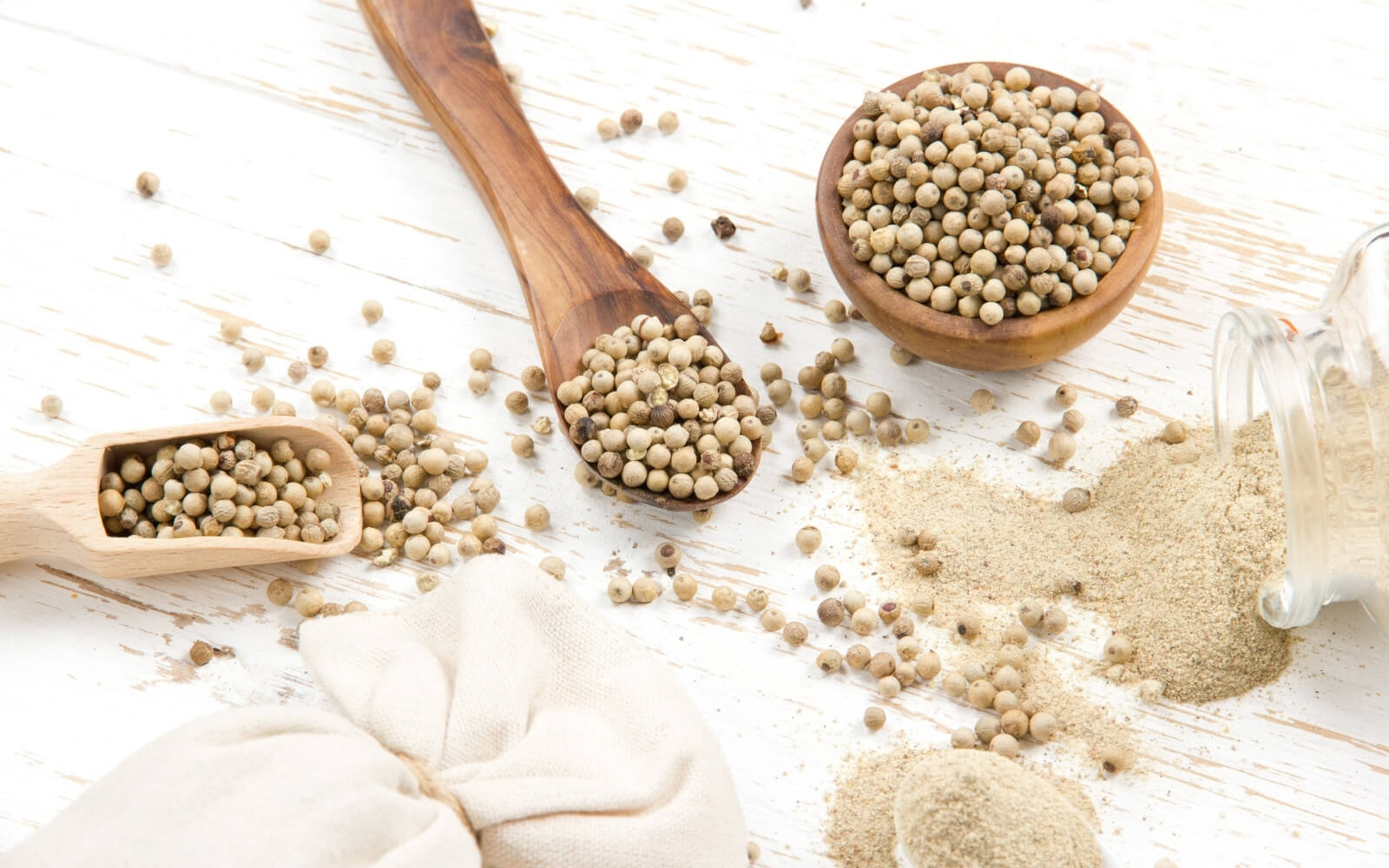Ashwagandha Dosage, Testosterone, Anxiety, Bodybuilding & Timing

Ashwagandha Dosage, Testosterone, Anxiety, Bodybuilding & Timing
Ashwagandha is an ancient medicinal herb that is classified as an adaptogen. This means it can help the body effectively manage stress and has been around for over 3,000 years. In addition to its stress-fighting powers, ashwagandha is used for anxiety, to help fight depression, boost fertility and testosterone levels in men, and certain studies even suggest ashwagandha may help boost brainpower.
We will begin this article by discussing the ashwagandha dosage for anxiety, testosterone, sleep, and bodybuilding and then conclude by discussing the 11 powerful benefits of this ancient herb.
What Does Ashwagandha Do?
Ashwagandha contains many compounds that help balance the body's physiology. The most researched phytochemicals in ashwagandha are its alkaloids and lactones which are thought to function as hormonal precursors. Ashwagandha is seen as adaptogenic, meaning it can help the body manage stress and will increase in effect when activity is low but will block excess stimulation when activity is too high. This makes ashwagandha an excellent option for those who struggle with anxiety and the wild hormonal variations that are so frequent with it.
Ashwagandha Dosage
Common doses of ashwagandha range from 250 mg to 5 grams once or twice daily. Ashwagandha supplements usually need to be taken for at least 20 and sometimes 40 days before the effects are fully felt.

Ashwagandha For Anxiety Dosage
When consumed for stress, high cortisol levels, and anxiety common ashwagandha dosage amounts range from 250 mg to 750 mg once or twice daily.
Ashwagandha For Testosterone Dosage
Clinical studies indicate that ashwagandha can boost testosterone and fertility levels in men. The ashwagandha for testosterone dosage used in research ranges from 250 mg all the way up to 5 grams once daily.
Ashwagandha For Sleep Dosage
To ensure a high-quality night of sleep 300 mg of ashwagandha consumed 30 minutes to 1 hour before bed has shown to be effective.
Ashwagandha Dosage For Hair Loss
Stress is a common cause of both hair shedding and hair loss. Due to its adaptogenic properties, ashwagandha may be used for hair loss. Ashwagandha dosage amounts of between 500 mg and 1,500 mg have shown to be effective for hair loss.
Ashwagandha Dosage Bodybuilding
To reap the strength and bodybuilding benefits of ashwagandha 500 mg to 600 mg taken once daily is recommended.
Other common ashwagandha doses include:
- Ashwagandha dosage for reducing inflammation: 250 to 500 mg daily
- Ashwagandha dosage for fertility and hormonal balance: 5,000 mg daily
- Ashwagandha dosage for thyroid health: 300 mg twice daily
Ashwagandha Dosage Timing
What is the best time to take ashwagandha? In general, ashwagandha can be taken in the morning, afternoon or night depending on the condition you are taking ashwagandha for. Unlike other supplements, however, its effects may not be felt right away.
For example, in one study that included 60 individuals who took 300 mg of ashwagandha daily, it took between 8 weeks and 10 weeks for its full effects on their sleep quality to be felt compared to the control group. You can read more about when to take ashwagandha here.
Ashwagandha Powder Dosage
How do the dose amounts differ from ashwagandha powder to capsules? Typically, extracts are more effective than crude ashwagandha powder and is therefore needed in lower dose amounts. The ashwagandha powder dosage amounts range from 500 mg to 5,000 mg whereas ashwagandha extracts or even capsules range from 250 mg to 1,750 mg.
Is 1000 Mg of Ashwagandha Too Much?
This is a commonly asked question and the answer is—it depends. What are you taking ashwagandha for? Is it safe to take 1,000 mg of ashwagandha daily? Yes, for many healthy individuals it is. The question is not whether it is safe but rather is it necessary for your condition. For fertility, testosterone, and hair loss 1,000 mg daily or above is recommended and shown to be most effective. For sleep, anxiety, stress, and muscle growth just below 1,000 mg has found to be effective.
How Long Does Ashwagandha Take To Work?
Depending on your health and age, it can take up to 8 weeks for ashwagandha to take to work to its full effect. Do not expect it to begin working right away. A high-concentration, full-spectrum extract can make the biggest impact on your body and be felt much sooner than ashwagandha root powder.
11 Benefits of Ashwagandha For Men
From reducing anxiety to boosting testosterone and fertility levels in men to increasing muscle mass and strength; ashwagandha has many health benefits.
1) Ashwagandha Has A Long History
Ashwagandha has been around for over 3,000 years and is one of the most essential herbs in Ayurveda which is an alternative form of medicine based on Indian principles of natural healing. The Ashwagandha plant is a small shrub with yellow flowers that is native to North Africa and India.
2) Ashwagandha For Anxiety
Ashwagandha is classified as an adaptogen, meaning it can effectively help the body manage stress. In a recent prospective, randomized double-blind, placebo-controlled study of safety and efficacy of a high-concentration full-spectrum extract of ashwagandha root powder concluded, "a high-concentration full-spectrum Ashwagandha root extract safely and effectively improves an individual's resistance towards stress and thereby improves self-assessed quality of life."
In a separate 60-day study that included "64 people with chronic stress, those in the group that supplemented with ashwagandha reported a 69% reduction in anxiety and insomnia (on average) compared with 11% in the placebo group." Ashwagandha is one of the most widely used and research-backed ingredients for effectively helping reduce anxiety levels.
Ashwagandha dosage for anxiety benefits appear to start at dosages as little as 250 mg per day.
3) Ashwagandha For Stress & Cortisol Levels
Numerous scientific studies have shown that ashwagandha can help reduce cortisol (stress hormone) levels safely and effectively. Due to the high-stress environment that many of us live in today, cortisol levels may become chronically elevated, which can not only lead to high blood sugar levels but also increased fat storage in the abdomen. Ashwagandha has been shown to reduce cortisol levels in chronically stressed adults.
If left untreated chronically elevated cortisol levels can lead to:
- Cardiovascular disease
- Osteoporosis
- Insulin resistance
- Diabetes
- Weight gain
- Memory issues
- Sleep problems
4) Ashwagandha May Help Reduce Depression
Ashwagandha does show promise in the ability to reduce depression in certain individuals. For example, in a controlled 60-day study that included 64 stressed adults, those who took 600 mg of high-concentration ashwagandha root extract each day reported a 79% reduction in severe depression whereas the placebo group reported a 10% increase. This is one of the many reasons that ashwagandha is present in our daily fast-acting Thought Calmer™.
5 ) Ashwagandha Can Help Reduce Inflammation
Ashwagandha has been shown to increase natural killer cell activity and decrease markers of inflammation. Killer cells provide rapid responses to virus-infected cells and act around 3 days after infection and also respond to tumor formation. A controlled study that was conducted in India with healthy volunteers aged 55 and older found that ashwagandha increases the activity of natural killer cells that fight off infection and help keep you healthy.
Ashwagandha has also shown the ability to decrease C-reactive protein (CRP), which is a marker of inflammation and is linked to an increased risk of heart disease. A controlled study that had the group take 250 mg of standardized ashwagandha daily saw a 36% decrease in CRP compared with a 6% decrease in the placebo group. Overall, Ashwagandha has displayed a remarkable ability to help reduce inflammation throughout the body.
6) Ashwagandha May Improve Brain Function & Even Memory
Research shows that ashwagandha promotes antioxidant activity the brain that protects nerve cells from harmful free radicals. Free radicals are unstable atoms that can damage cells, resulting in illness and aging. A controlled study that included healthy middle-aged men who took 500 mg of standardized ashwagandha extract daily reported significant improvements in their reaction time and task performance when compared to those who received a placebo.
In a separate prospective, randomized, double-blind, placebo-controlled study that included 50 adult Americans who were either treated with ashwagandha root extract ( 300 mg twice daily) or a placebo for eight weeks found significant memory, task performance, and attention improvement in those who received ashwagandha root extract twice daily. The overall conclusion of the study was, "ashwagandha supplements may improve brain function, memory, reaction time, and the ability to perform tasks."
7) A Compound In Ashwagandha May Help Kill Cancer Cells
Withaferin—a compound in ashwagandha helps induce apoptosis (programmed death of cancer cells) and is believed to promote the formation of reactive oxygen species (ROS) inside cancer cells thus disputing their function. Test-tube and animal studies suggest that ashwagandha may effectively help treat several types of cancer including breast, lung, colon, brain, and ovarian cancer. Although this may not be the "main" reason people supplement with ashwagandha it is certainly an added benefit.
8) Ashwagandha Testosterone
Ashwagandha has shown a powerful ability to increase testosterone levels and boost sperm quality in middle-aged men.
Ashwagandha Testosterone Study
In one study that included 75 infertile men, the group of men that were treated with ashwagandha displayed an increase in sperm count and motility. In fact, after three months of treatment over 14% of the men's partners had become pregnant.
How Much Ashwagandha Per Day For Testosterone?
Research suggests that taking anywhere from 250 mg to 5 grams of ashwagandha once or twice daily has shown to be effective. In fact, clinical studies indicate that ashwagandha can boost testosterone levels by as much as 20% when taken for eight consecutive weeks.
9) Ashwagandha Can Help Reduce Blood Sugar Levels
In several scientific studies, ashwagandha has been shown to help reduce blood sugar levels. In fact, several human studies have suggested that it can reduce blood sugar levels not only healthy individuals but in those with diabetes as well. Furthermore, in a small 30-day study that included 6 people with type 2 diabetes, supplementing with ashwagandha lowered fasting blood sugar levels.
10) Supplementing With Ashwagandha May Lead To Increases In Muscle Strength
Ashwagandha can help individuals increase muscle size and strength while simultaneously reducing body fat percentage. An 8-week, randomized, double-blind, placebo-controlled clinical trial that included 57 young men with limited experience in weight training were randomly divided into treatment subjects (29) and placebo subjects (28). Those in the treatment group consumed 300 mg of ashwagandha root extract twice daily, while those in the control group consumed a look-alike placebo.
After the baseline measurements were complete both groups participated in weight-training for 8 weeks and measurements were at the end of week 8. The results found that compared to the placebo subjects, the group that supplemented with ashwagandha had significantly greater increases in muscle strength on the bench-press exercise and the leg-extension exercise while simultaneously significantly increasing strength in the arms.
Study of Ashwagandha Supplements
As mentioned briefly above, ashwagandha has shown the ability to help individuals increase muscle size and strength while reducing body fat percentage. A placebo-controlled study examining the effect of Withania somnifera (ashwagandha) supplementation on muscle strength and recovery concluded, "ashwagandha supplementation is associated with significant increases in muscle mass and strength" and suggests, "Withania somnifera may, therefore, be useful for general weakness and to improve speed and lower limb muscular strength and neuro-muscular co-ordination."
11) Ashwagandha May Help Lower Cholesterol Levels
Ashwagandha may help improve heart health by reducing cholesterol and triglyceride levels and improving blood flow. In a 60-day double-blind, placebo-controlled study conducted at the Central Research Institute in chronically stressed adults, aged 18-60 found that those who took the highest dosage of ashwagandha extract experienced a 17% reduction in LDL (bad) cholesterol levels. Furthermore, they also noticed an 11% decrease in triglycerides.
Ashwagandha Supplements
Ashwagandha supplements are safe and widely accessible in health shops, supplement stores, and the Fitore Nutrition Thought Calmer. Those who are pregnant, on thyroid medication or breast-feeding mothers should consult with their medical professional before starting an ashwagandha supplement regimen.

Summary
Ashwagandha is an ancient medicinal herb that is classified as an adaptogen—meaning it can help the body manage stress. Dozens of scientific studies have shown that supplementing with ashwagandha can help reduce cortisol (stress hormone) levels safely and effectively. This is important because chronically elevated cortisol levels can lead to a variety of health issues that when left untreated can become life threatening.
If you would like to learn about the negative side effects of ashwagandha click here.
Ashwagandha Uses Recap
- Ashwagandha shows promise in the ability to reduce depression in certain individuals.
- Studies show that ashwagandha supplements have a powerful ability to increase testosterone levels and boost sperm quality and fertility in men. Supplementing with this ancient medical herb can also lead to an increase muscle strength.
- Ashwagandha is one of the most effective natural stress and anxiety relief options on the market today.
- When consumed on a daily basis, ashwagandha can lead to the death of cancer cells.
Quick Answers About Ashwagandha

Q: What does ashwagandha do to the body?
A: Ashwagandha contains chemicals that have been shown to help calm the brain, reduce cortisol levels, safely lower blood pressure, boost testosterone and fertility levels in men, and also alter the immune system.
Q: Is it safe to take ashwagandha daily?
A: Studies show that it is safe to take ashwagandha on a daily basis and there are no long-term side effects of supplementing with it. It is recommended, however, that if you are nursing or pregnant that you speak with your physician first.
Q: Best time to take ashwagandha?
A: For best results, take ashwagandha at least 30 minutes to an hour before bedtime. If you wish to have a calming effect for the day take ashwagandha in the morning with your breakfast, coffee, or tea.
Q: What is the proper ashwagandha for anxiety dose?
A: Common ashwagandha for anxiety doses ranges from 250 mg to 750 mg daily. Ashwagandha for stress supplementation is 500 mg to 1,000 mg daily.
Q: How much ashwagandha per day for testosterone?
A: Daily doses of ashwagandha in doses of 125 mg to 5 g have shown benefits in clinical trials. You should always consult a medical professional before beginning a supplement regimen.
Q: Is 1000 mg of ashwagandha too much?
A: Although it varies from person to person there is no general recommendation for how much should be taken. For root power, standard doses are between 1,000 mg and 6,000 mg. For the extract, the daily dose is between 500 mg to 1,500 daily.
Leave a comment
Comments will be approved before showing up.
Also in Ingredients

Licorice Root: Benefits, Side Effects & Dosage

Slippery Elm Bark Benefits, Side Effects & Dosage











